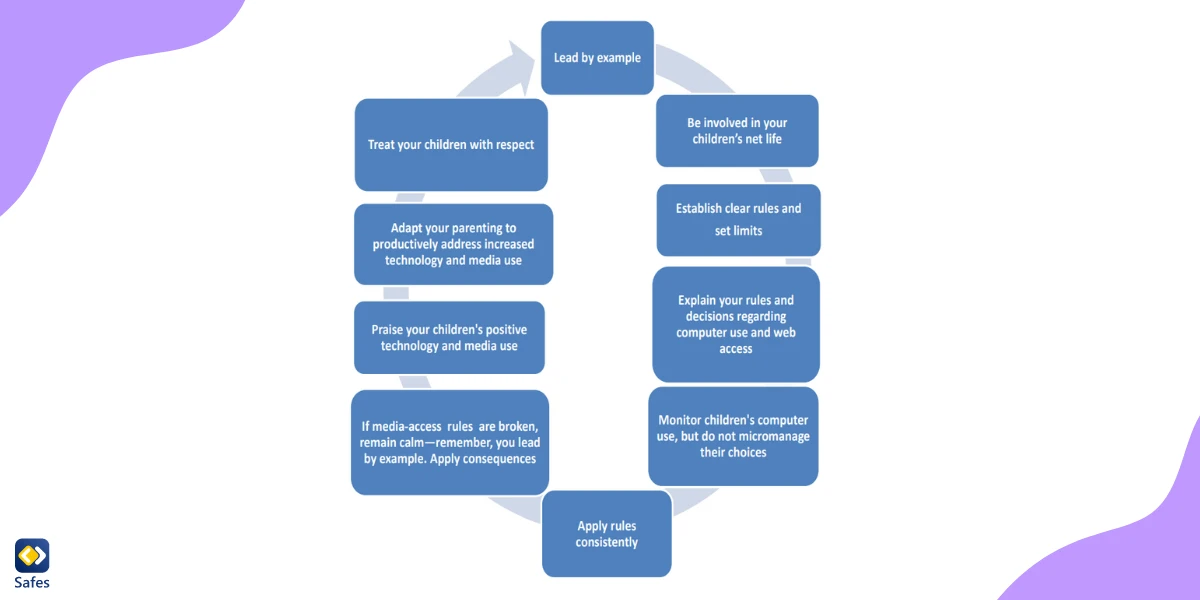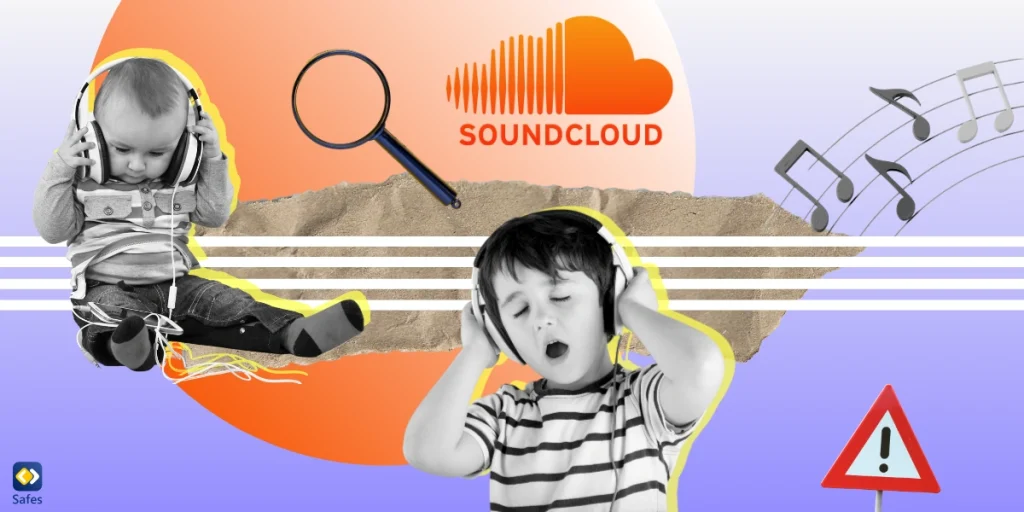From pen pals to virtual playdates, the evolution of friendships has made significant strides in the age of the internet. It’s a world where children can forge friendships with individuals from every corner of the globe, transcending geographical boundaries. The advent of online friendships has undoubtedly brought new dimensions of connections, engagement, and learning.
Download and Start Your Free Trial of the Safes Parental Control App
However, the virtual landscape also presents its own set of challenges. As these friendships bloom in the digital realm, so do the risks associated with online interactions. For parents, ensuring the safety of their children as they navigate these online communities to make friends becomes a top concern.
The Rise of Online Friendships
The proliferation of the internet and social media platforms has paved the way for friendships to thrive in a virtual setting. This trend has not spared the younger generation, who, in fact, are the most adept at forming friends on social media and other online platforms.
For children and teens, these online friendships offer a myriad of benefits. By connecting with others who share their interests, they can enhance their social connections, especially when face-to-face interaction is limited or non-existent. It also provides a safe space for self-expression, allowing them to explore their identities free from judgment.

The Hidden Dangers of Online Friendships
Despite the advantages, online friendships also come with potential dangers. One of the most pressing concerns is the risk of online predators who may exploit these platforms to groom children for nefarious purposes.
Exposure to inappropriate content is another issue. The internet is a vast space filled with content that may not be suitable for young audiences, including hate speech, extremist propaganda, and explicit material.
Moreover, the lack of face-to-face interaction in these friends’ online scenarios can impede the development of vital social skills, such as empathy, trust-building, and the ability to read non-verbal cues.
Recognizing Red Flags and Taking Action
Parents must be vigilant in observing their child’s online behavior. Recognizing potential warning signs is critical in preventing situations that may lead to unhealthy or dangerous online interactions. These signs can include:
- Prolonged hours spent online
- Secretive behavior, such as hiding devices when parents enter the room
- The unexpected arrival of gifts from unknown individuals
- Withdrawal from family activities
Communication and Setting Boundaries
Open dialogue is critical in fostering a safe environment for online friendships. Starting these discussions early can help shape a child’s perspective on proper online behavior. It’s essential to encourage openness about their online interactions, which not only allows parents to guide them but also promotes trust and understanding.
Establishing clear rules and boundaries on internet use can also help maintain control over your child’s online activities. This can include setting screen time limits, prohibiting certain types of content, and requiring regular check-ins.
Monitoring Online Activity
As explained by Eva Patrikakou, an associate professor and the director of the Special Education for Teachers program at DePaul University’s Department of Counseling and Special Education, parental involvement in a child’s digital life is crucial. Understanding the digital tools available to manage online engagement is vital. Learning how to utilize privacy settings in social media apps, exploring parental controls, and asking kids about their privacy strategies can provide valuable insights.
The figure below shows ten interrelated principles of parent involvement applied to technology and media use (Source: Parent Involvement, Technology, and Media: Now What?):

Empowering Parents with Parental Control Apps
Parental control apps like Safes provide a practical solution for managing and monitoring a child’s online activity. This app offers features like website and app blocking, screen time management, location tracking, and content monitoring.
Safes is a multi-platform app, which means you can use it to protect your child on all of their devices, including phones, tablets, and computers. Safes is compatible with major platforms like Android, iOS, Windows, and Mac. Explore Safes with our free trial and start securing your child’s online experience today. Sign up to see how Safes can empower you with advanced monitoring and control features.
Feel free to download Safes from App Store or Google Play. Learn how to use Safes to put parental controls on your child’s device by following the links below:
- Windows parental controls
- Macbook parental controls
- Parental controls on Android
- iPhone parental controls
Encouraging Offline Connections
Finally, it’s crucial to keep in mind that while online friendships have their place, real-life interactions remain invaluable. Encouraging children to form offline connections and participate in local events, clubs, and organizations can help balance their social life.
Depending on your child’s preferences, you can try enrolling them in arts, sports, or science courses. The key is to find an activity for them that they enjoy while they can meet children of their own age and with the same interests.
Safety with Virtual Friends: Conclusion
The world of online friendships poses both opportunities and challenges. As a parent, it’s essential to remain vigilant, understanding, and proactive in safeguarding your child. With open communication, clear boundaries, and the right tools, you can ensure that your child makes the most of their online friendships while staying safe.
Remember, the internet is a tool that, when used correctly, can enrich our children’s lives. By teaching them how to use it responsibly and safely, we are equipping them with the skills they need to navigate not just the online world but the offline world as well. Let’s empower our children to make friends on the internet while ensuring their safety.
Your Child’s Online Safety Starts Here
Every parent today needs a solution to manage screen time and keep their child safe online.
Without the right tools, digital risks and excessive screen time can impact children's well-being. Safes helps parents set healthy boundaries, monitor activity, and protect kids from online dangers—all with an easy-to-use app.
Take control of your child’s digital world. Learn more about Safes or download the app to start your free trial today!




